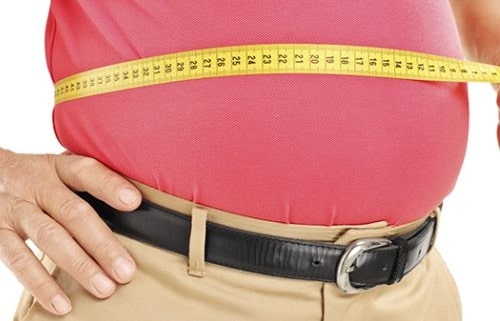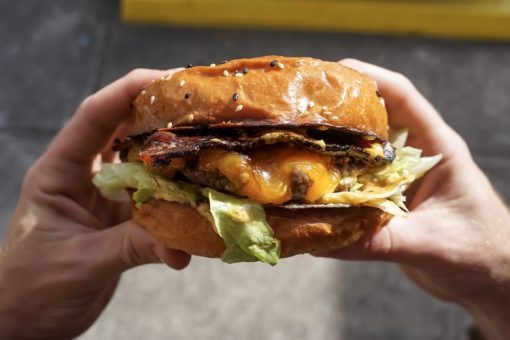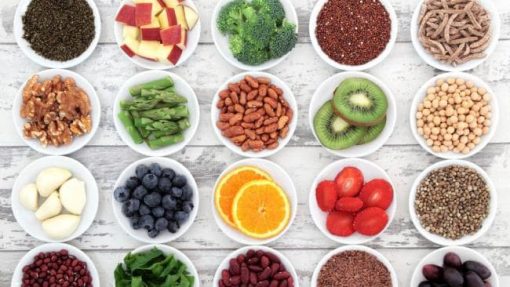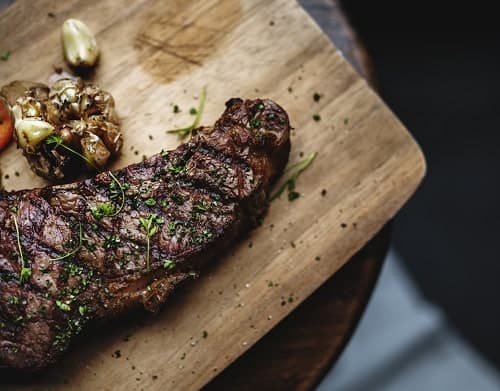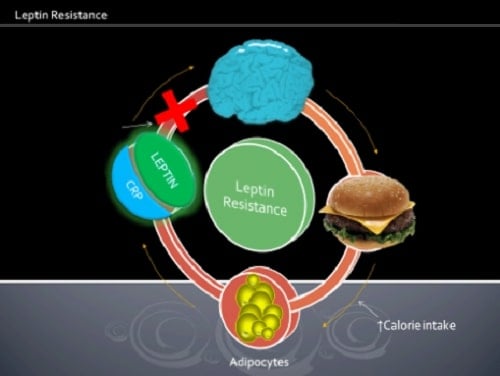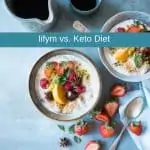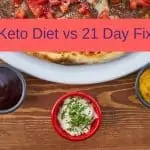So, you’ve started doing the ketogenic diet recently because your best friend was just telling you about how she dropped twenty pounds and a pant size in a month. As soon as you heard how all your friend had to do was stop eating carbs, you quickly hopped on board and started hoping that you would lose the same twenty pounds and a pant size in a month.
You’ve been on the diet plan for two weeks and step on the scale, only to see that you haven’t lost any weight or maybe even gained a little bit! Chances are you started freaking out, so you went online to do some research to see what you’re doing wrong with the keto diet.
All you’ve heard about the keto diet is about how it basically makes weight practically melt off of your body- so why isn’t it working for you?
I’ve totally been there with you and understand how frustrating the ketogenic diet can be, especially if you don’t know what you’re doing wrong. Don’t give up all hope, because there are a lot of common mistakes that keto beginners make that cause a stall in the weight loss, a stall in their fat loss, and even weight gain!
We’re going to talk about the most common keto beginner mistakes and how you can fix them to get into the state of ketosis and reap all of the benefits this lifestyle has to offer you!
What are the top ten reasons the keto diet isn’t working for me?
- You aren’t actually in a state of ketosis
- You are eating too much fat
- You’re getting too much exercise
- You’re missing out on hidden carbs
- You aren’t eating nutritious meals
- You aren’t eating enough calories
- You’re eating something that you’re allergic or intolerant to
- You’re too stressed out
- You aren’t sleeping enough
- You have leptin resistance
Topic Contents
1. You Aren’t Actually in a State of Ketosis
If you’re following along with the ketogenic diet, it doesn’t necessarily mean that your body is in a state of ketosis. Consuming hidden carbs, getting too much exercise, not eating meals that are high in nutrition, eating too many calories, not eating enough calories, and several other factors play a part in whether or not your body is in a state of ketosis.
Knowing whether or not your body is in a state of ketosis doesn’t have to be a guessing game. If you find that you’re not losing weight on keto, the first change you should start making in your diet is to see whether or not your body is in a state of ketosis. After testing yourself, you find that you are in a state of ketosis, but still, aren’t losing weight, there are a number of other reasons to factor in as well. Let’s first start with testing your ketones!
There Are Three Ways That You Can Measure the Number of Ketones in Your Blood
- Blooding testing (the most accurate way to test)
- Breath testing
- Urine testing
1. Blood Testing
Blood testing is the absolute more accurate way for you to measure the levels of beta-hydroxybutyrate (BHB). All it takes for you to measure the level of BHB in your blood is to stick your finger, and you’ll be able to measure your blood by using a blood meter.
The reasoning on why blood testing is the more accurate way to tests your level of ketosis is because there isn’t anything that can dilute the results of your rest, causing inaccurate readings. The number that you see on the blood meter is the same exact number of ketones that are in your blood (in mMol/l).
2. Urine Testing
Many people prefer urine testing over blood testing because it’s much less invasive and much more affordable than blood testing. To test your level of ketones with urine testing, all you have to do is urinate on a strip. The strip will change colors to let you know the level of ketones in your urine. The only downside to urine testing is that it isn’t the most accurate way to measure your level of ketones.
The reason why the urine testing isn’t the most accurate way to test the level of ketones in your body is because the urine test only measures the number of ‘wasted’ ketones in your body (the ketones that your body is getting rid of through your urine, because it isn’t using it for energy).
When your body becomes more adapted to the state of ketosis, your body is going to start using a larger number of ketones for energy. If you’ve followed the ketogenic diet for a long time and are wondering if you’re even in ketosis at all, urine testing will be useless for you. Once you have followed the ketogenic diet long enough to become fat adapted, you will not have any signs of ketones in your urine.
3. Breath Testing
Breath testing is a little bit more accurate than urine testing, but still nowhere nearly as accurate as blood testing. IIt works by measuring the level of acetone on your breath; breath testing measures the acetone in your breath because the ketones that show up on your breath are acetone, not BHB.
Just tracking the number of carbs, protein, fat, and calories you’re consuming isn’t going to be enough for the first couple of months on keto, especially if you’ve never done this before. By tracking your ketone levels, you will have a better understanding of how what you’re eating affects your body and what foods kick you out of ketosis. You should consistently track your ketone levels so you can monitor what foods work best for the lifestyle you’re living and your desire to stay in ketosis.
2. You Are Eating Too Much Fat
When I first started keto, I was under the impression that I could eat as much fat as I wanted and there wouldn’t be any consequences. Flash forward a week, and I had actually gained weight instead of losing, which didn’t make any sense to me because I thought I was supposed to eat extra fat on the keto diet.
I did a little bit of research and found out that my original mindset about the ketogenic diet was completely wrong. It turns out keto isn’t an excuse to follow the all you can eat – fat diet with no calorie restrictions but is instead following a high-fat, moderate protein, low carb diet.
In order to lose weight following the ketogenic diet, you still have to make sure that you’re monitoring your calories. You don’t really have to cut back on the number of calories you’re eating, but you also shouldn’t go crazy and eat way more than you’re used to eating. By overeating, you won’t see any weight loss following the ketogenic diet.
Not everyone can eat a lot of calories on a daily basis, so you should have an understanding of what your necessary calories need are for your body and for the type of lifestyle you’re leading. Fat is very high in calories, which means that if you’re consuming a large quantity of extra fat in your diet because you think you need to eat extra fat on the keto diet- don’t. Your body has plenty of fat that it will burn through for weight loss, so don’t start filling your diet with extra fat (which means extra calories) and you will start to see some of the weight shedding off.
If you’ve been following the ketogenic diet for a while and have seen a decent amount of weight loss, but have come to a stall, try recalculating your daily caloric needs. As your body has gotten smaller and you way less than you once did, your body isn’t going to need as many calories as it once did.
3. You’re Getting Too Much Exercise
All of your life, you’ve been told that exercise is a wonderful thing for your body. Don’t get me wrong- exercising is a beautiful way to celebrate your body and ensure a healthy lifestyle. However, there is a healthy limit of exercise for all of our bodies, and the amount of exercise that you’re getting can be the reason why you’re not seeing any weight loss following the ketogenic diet.
Mainly, people who are looking to lose weight will abuse chronic cardio; the only downside to using repetitive aerobic training for weight loss is that most of the time, this type of training will increase your hunger because your body feels like it’s being deprived.
While exercise does help you lose weight and properly exercising does lead to a healthier lifestyle, abusing exercise puts a lot of stress on your body. The depravity feeling your body has, and the excess stress that your body is under will be enough to put your body in a weight loss stall if you’re following the ketogenic diet.
4. You’re Not Aware of Hidden Carbs
If you spend a little bit of time doing some research, you will find a list of foods that are ‘safe’ to eat on keto. Certain dairy, nuts, and vegetables are ‘safe’ to eat on the Keto Diet but have a higher carb count than you may think at first.
Dairy, nuts, and some veggies are foods that should be consumed with caution. A common problem that a lot of people run into with the ketogenic diet is that they overeat on dairy and nuts to make themselves feel satiated, but some of these foods can high in both carbs and calories without you necessarily realizing it.
There are also several vegetables such as cabbage, broccoli, fennel, turnips, cauliflower, and Brussel sprouts that have hidden carbs in them. Consuming fruit on the ketogenic diet is highly discouraged because of the amount of sugar (sugar = carbs) in fruit.
The easiest way to start becoming aware of the hidden carbs in food is to start tracking your macros. Carbs are hidden in so many foods, so you have to be really careful about what foods you’re consuming and how much of those foods you’re consuming.
As an easy percentage, carbs should make up 5% of your daily calorie intake while following the ketogenic diet. While this percentage may vary a little bit based upon how active you are, what your current weight is, your gender, and your age, you will generally stick around this 5% daily carb intake.
The amount of carbs that you can consume on a daily basis and still be able to stay in ketosis does vary by each person.
There Are a Few Things That Can Contribute to How Your Body Uses Carbs
- Your overall lifestyle
- The types of carbohydrates you consume
- Your metabolic history
By using a carb tracker or a calorie tracker to monitor the foods that you’re consuming, you will be able to keep a better eye on what foods have carbs, how many carbs a certain portion has, and where the hidden carbs in your diet are sneaking in. Now, you don’t have to track your carbs on a daily basis for the rest of your life. Start monitoring for a month or two to get a better understanding of how many carbs you’re actually consuming on a daily basis and how your body reacts to certain types of foods. Carb Manager and My Fitness Pal are two apps that are free to use and allow you to see how many calories and how many grams of carbs you’re consuming on a daily basis!
5. You Aren’t Eating Enough Calories
The information that most of us have been fed our lives when it comes to weight loss is that cutting calories is the only way to lose weight. For some of us, cutting out some excess calories from our diet isn’t too big of a deal.
But with the way the ketogenic diet works, you don’t have to worry about cutting out excess calories and going hungry! All you have to worry about is making sure that you’re not eating over your daily limit of carbs and to monitor your protein intake.
Maybe you’ve even run into the problem of being afraid to eat foods with higher fat because all of your life you’ve been told that foods that are high in fat (especially animal fat) are terrible for your health. If you still find that you believe that statement and that eating fat is the absolute worst thing you can do for your body, you’re going to struggle to consume enough calories.
Not eating enough calories on a daily basis is one of the worst things that you can do for your body because not consuming enough calories on a daily basis will put your body into starvation mode. By putting your body into starvation mode, your body is actually going to start holding onto the stores of body fat, which will negatively affect your hormone productions and other functions of your body.
Just like you track your protein and carb intake, you can also track your caloric intake! Try tracking your caloric intake on a daily basis to get a better understanding of how many calories you need to function on a regular basis and how many calories you’re actually eating on every day. Carb Manager and My Fitness Pal are two (free) apps that you can download on your phone that allow you to track your fat, protein, carbs, and daily caloric intake!
6. You Aren’t Eating Meals That Are High in Nutrition
When following the ketogenic diet, all most people think about is the high-fat, low-carb part of the diet. What most people forget to think about is the nutritional value of the foods that they’re consuming. If you’re really looking to not only lose weight but create a healthier body for yourself, you have to start thinking about the types of foods that you’re consuming.
Eat Fiber
Fiber is the absolute best thing to consume to help keep you a fuller feeling for a more extended period, for keeping your digestive tract moving, and for having a healthy guy! If you’re not eating fruits and vegetables, you’re probably not consuming enough fiber. Try adding more vegetables in your diet, and you’ll be consuming more fiber in your diet!
Eat Micronutrients
Micronutrients are so incredibly important, especially when it comes to following the ketogenic diet. Not consuming enough micronutrients can cause your body to reach a stall! It’s totally understandable why you’d be afraid to eat vegetables because you’re afraid of eating too many carbs.
Here are some ways that you can eat vegetables and worry less about the carbs you’re consuming:
- Start making smoothies with a fatty base, but include leafy greens like spinach and kale.
- If you’re absolutely against eating vegetables because of the carbs in them, you can start eating organ meats from animals (liver, heart, gizzards (bird by-product only), and even stomach). Organ meats are delicious if cooked the right way and are packed with micronutrients.
- Only eat veggies that are low in carbs. When you do eat low carb veggies, start including some fat. This will make sure that you’re still consuming enough fat in your diet, but will also give you a boost of greens that are dense with nutrition.
Eat Fats That Are High-quality
Maybe the only mistake that you’ve been making that has stopped your body from going into a state of ketosis is that you aren’t eating fats that are high-quality. Fats that are not only healthy, but that is high in fat is not only important for weight-loss but also helps to regulate the proper function of your hormone production and your brain function.
Now that your diet consists mainly of fat, you’re going to want to make sure that you eat high-quality fat. Just like you wouldn’t stuff your body full with Cheetohs and white bread if you were eating high-carb, low fat. You don’t want to stuff your body full of fats that aren’t healthy for you.
You should start including fats such as:
- Avocado
- Nuts
- Wild fish
- Fatty, grass-fed meats and dairy
- Cold-pressed, unrefined oils
If you are someone who has found out that you need to start creating a calorie deficit in your diet, you should have an understanding that you don’t need to feel hungry all the time just because you’re cutting back on the calories you’re eating on a daily basis.
Allowing yourself to feel hungry on a consistent basis will only make you feel miserable and tired, which makes you even less likely to stick to your diet and go back to your comfort food eating habits. One of the wonderful things about the ketogenic diet is that you can eat foods that taste rich and delicious, that are low in carb, and you can still follow along with a calorie deficit!
Consuming satiating saturated and monounsaturated fats are the most monumental parts of the ketogenic diet; if you want to follow along with the ketogenic diet that helps you to lose weight, but also helps to give you a healthier body, you should start to consume a larger amount of high-quality fats.
Also, don’t be afraid to add a little more protein into your diet. Meats that have higher fat content, such as fish and steak are great to eat if you’re looking to feel satiated because the fat takes a long time for your body to break down and digest (in comparison to carbs).
While you may have heard that overeating protein on the ketogenic diet can be a bad thing, as it can trigger gluconeogenesis, which is where your body produces glucose from non-carb sources, such as protein), ultimately kicking your body out of ketosis. There are some keto bloggers, scientists, and doctors that argue that gluconeogenesis kicking your body out of ketosis is just a myth.
The argument behind gluconeogenesis being a good thing for maintaining ketosis is that gluconeogenesis gives energy to the cells in your body that can’t use ketones, such as red blood cells, thus helping to keep your blood sugar levels in a safe and healthy range. They say that without the help of gluconeogenesis, your body being in a state of ketosis wouldn’t be possible.
The idea is that eating an excess of protein won’t increase the rate of gluconeogenesis enough to kick your body out of ketosis because the process of gluconeogenesis is very stable. Whether you choose to believe one side of the argument or the other, is completely up to you after you do your research.
I personally believe that if you’re still feeling hungry, it’s so much healthier for your body to eat some extra protein rather than reaching for chocolate cake. Eating an excess of protein isn’t going to increase your glucose levels in the same way that a cupcake will!
7. You’re Eating Something That You’re Intolerant to
Even if you’ve done your research and know all about everything I just talked about at the beginning of the article, consuming food that you’re sensitive can throw off your weight loss. It’s more of a common problem that many people would believe, but there is a good portion of people out there that have a food sensitivity that they don’t even know about.
When your body has a sensitivity to a specific nutrient or ingredient in certain foods (such as gluten or lactose), you will have an imbalanced gut, which can lead to increased inflammation all around your body. Most people don’t realize the importance of gut health and how the health of your gut changes how your entire body is feeling, which is why it’s so important to know what food you are sensitive to!
Having an unhealthy, imbalanced gut can slow down (or even stop) your weight loss, along with the possibility of gaining weight. Take care of your gut by paying attention to what foods make your body feel better, what foods make your body feel worse, and possibly even going to a doctor to figure out what foods you’re sensitive to!
8. Your Stress Levels Are Too High
Stress is a very damaging emotion to your body, but especially so when you’re trying to lose weight. When your stress levels increase, your body starts to produce a hormone called cortisol. Cortisol, also known as the stress hormone, is the hormone that you produce when your body is under a significant amount of pressure or in a fight-or-flight situation.
The reason that cortisol can slow down your weight loss is that it can increase the fat stores around your stomach, which can increase the difficulty of your weight loss. If you’re under constant, chronic stress, the difficulty of your weight loss will significantly increase because the amount of fat that is stored in your abdomen area will increase.
9. You Aren’t Getting Enough Sleep
You’ve probably heard this from a million different bloggers, but the amount of sleep you’re getting (and the quality of sleep you’re getting) plays a drastic role in your hormone production. This is one of the most underestimated factors on why your body isn’t in a state of ketosis and why your body is stalling with weight loss.
Not getting enough sleep messes with every function of your body and increase the risk of your body having metabolic problems. Getting your body into a state of ketosis is already a huge switch for a system that has depended so heavily on carbs for such a long time, so depriving your body of sleep is going to do nothing but slow down or even stop the process of your body going into a state of ketosis.
Try following a consistent sleep pattern, getting at least eight hours of sleep every day, and you’ll find not only that you have more energy, but you’ll start repeating the benefits of ketosis (if you’re managing to follow a diet that will get your body into a state of ketosis).
10. You Have Leptin Resistance
If everything else that I’ve gone over doesn’t apply to you or you’ve already tried and you’re still having problems with weight loss following the ketogenic diet, you may have leptin sensitivity or leptin resistance. Leptin the ‘hunger hormone’ that lets your brain know when you’re feeling full after eating a meal, how many calories you burn, and how much fat you carry on your body.
When a body doesn’t have any problems regulating leptin, the hormone enters the bloodstream through your circulatory system and binds together with protein in your bloodstream. When leptin reaches your brain, it moves across your blood-brain barrier and attaches to leptin receptors in your brain. The leptin then lets your brain know that your stomach is feeling full and that you should stop eating.
If you have leptin resistance or leptin sensitivity, leptin doesn’t properly transmit its message across the blood-brain barrier. Don’t worry, your leptin resistance/sensitivity can be fixed and is only caused by high-stress levels, overeating, undereating calories, or irregular sleep patterns.
If you’re not consuming enough calories, start eating more calories, if you’re not sleeping consistently, find a way to have a solid eight uninterrupted hours of sleep every night, and if you’re overeating, work on cutting back on the calories you’re consuming on a daily basis.
Work on changing your habits, and you’ll find that you will have changed your leptin resistance/sensitivity back to normal; it may take six to eight weeks for you to start noticing your leptin resistance being restored back to normal regulation. This means that it may take six to eight weeks for you to start noticing any difference on the scale- just be patient and listen to your body.
You’ll start seeing results soon enough!
What Should You Take Away From All of This?
The majority of keto lifestylers have been there- just starting off and not sure what we’re doing. Starting the ketogenic lifestyle can be extremely frustrating, but don’t give up hope; once you start figuring out what works for you and your body with this lifestyle, you’ll quickly start to reap all of the benefits of keto!
This Might Interest You
- Carb Cycling vs Ketogenic Diet: What’s the Difference?
- The Best Fats to Eat on the Keto Diet
- Gluconeogenesis vs Ketogenic: What Happens When You Reach Ketosis?
- The Best Keto Snack Ideas to Include in Your Ketogenic Diet
Medical Review Comments from Dr. Robin Walsh, BASc, ND
This article brings up so many great points, and also emphasizes the importance of individualized medicine and nutrition plans. Our bodies are so unique and just because a plan that seems so easy for some is not working for you, does not mean that your weight loss journey is impossible . It does mean that you have to determine what your body is trying to tell you and how to find a solution.
In addition to the great information in this article, some other things to consider are sweeteners. Although there are a lot of keto friendly sweeteners on the market many of them may still increase insulin levels causing sluggish weight loss. In those individuals who are struggling with loss, I suggest that until loss is initiated you remove all sweeteners including artificial, sugar alcohols and even stevia.
Intermittent fasting is another tool that can enhance the ketogenic diet. This is a practice where by you are structured the timing in which you eat. Since all foods will increase your insulin levels, in very insulin resistant patients fasting can be a tool that is used to drop insulin levels and assist with sluggish weight loss. It is important before starting any kind of weight loss program that you speak with a qualified health practitioner.
The ketogenic diet can be a great plan for many people to lose weight. That being said, it does not work for everyone. This article presents great ideas of things to double check to make sure that you are executing the program correctly. I do believe there is a proper plan for everyone, so at the end of the day if you are still struggling while following the ketogenic diet properly it is important to find a qualified health professional to help you navigate your individual hormones and find the plan that works for you.
Note: Dr. Robin Walsh is not associated with any products, will never recommend a specific product, nor give specific medical advice here in her contributions. She comes as a representative of herself alone and always recommends consulting with your primary care physician before making any health-related decisions.
Disclaimer
Last updated: December 16, 2019
The information contained on www.altprotein.com website (the “Service”) is for general information purposes only.
Alt Protein assumes no responsibility for errors or omissions in the contents on the Service.
In no event shall Alt Protein be liable for any special, direct, indirect, consequential, or incidental damages or any damages whatsoever, whether in an action of contract, negligence or other arising out of or in connection with the use of the Service or the contents of the Service. Alt Protein reserves the right to make additions, deletions, or modification to the contents on the Service at any time without prior notice.
Alt Protein does not warrant that the Service is free of viruses or other harmful components.
Fitness disclaimer
The Service offers health, fitness and nutritional information and is designed for educational purposes only. You should not rely on this information as a substitute for, nor does it replace, professional medical advice, diagnosis, or treatment. If you have any concerns or questions about your health, you should always consult with a physician or other health-care professional.
Do not disregard, avoid or delay obtaining medical or health-related advice from your health-care professional because of something you may have read on the Service. The use of any information provided on the Service is solely at your own risk.
You can also review our Editorial Integrity Policy.
Alt Protein Team is a team of professionals and enthusiasts committed to bringing you the most up-to-date information on alternative protein, health and wellness, workouts, and all things health-related. We’ve reviewed a lot of products and services so you don’t have to guess when you spend your hard-earned money on them. Whether you want to shed some pounds, build lean muscle or bulk, we can help you figure out what you need to do and what you need to have to achieve your goals.


